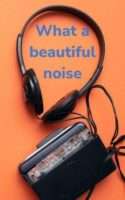“In high school we partied like crazy and never studied, but we still passed. But university is different, man. The work almost killed me.”
This is what a first year University of the Western Cape (UWC) Nursing student wants to tell learners before they get over-excited about tertiary studies.
Of course, these words can bring more questions than answers to mind. Is this a problem faced by other students as well, or just the ramblings of one lazy first year student? Is this perhaps not a problem that only affects UWC?
Well, in trying to answer these questions, I must first acknowledge that there is some agreement with his comments. I conducted anonymous interviews with various students, all of whom were in their final year of studies, and they confirmed that university studies do indeed separate the kids from the grown-ups. In other words, the hard-working people line up on one side, and the so-called quitters line up on the other.
I wanted to get more detailed answers, plus maybe even settle the old debate about which degree is harder between the Undergraduate LLB (Bachelor of Laws) and Bachelor of Commerce (Accounting) degree. So, I asked the interviewees to rate their degrees out of ten, with ten being most difficult.
All fifteen final year law students that I interviewed rated the law degree a nine out of ten. One was even heard saying: “This degree is not for sissies, bra! And stuff like the NSFAS (National Student Financial Aid Scheme) makes matters worse. The money takes half a semester to come out and you starve in the meanwhile. But you have to try and study, because test and assignment deadlines come and go – they do not wait until you have photocopying and printing money from NSFAS.”
It was surprising, however, to find that fifteen of the twenty accounting students interviewed only rated their degree seven and a half out of ten. Last time I heard, the Accounting degree was said to be university’s hardest. It just goes to show: not every student likes the idea of scaring schoolchildren off university.
A senior student in Computer Science agreed, saying that there was light at the end of the tunnel. “It’s just about using the first year to adjust to the way things work at varsity,” she explained. “But people should learn, even before they come to university, that you need to have a good study method, and a well-organised study timetable that tells you which hours you will use for sleeping and relaxing, and which you will use for studying,” she added.
A third year student in Theology was quick to point out the need for each student to have positive influences around them, saying: “I had so many successful people coaching me, that there was never a moment when I believed that I would not succeed. There are a lot of reasons why students struggle sometimes. I’m sure you can imagine that if you’ve never seen a computer or even a library in your entire life, you won’t immediately appreciate their importance, and that will affect your marks. This is what a lot of students from underprivileged schools go through,” he continued.
Having scored thirty percent for my first-ever assignment at university, I find myself agreeing with his comments. I felt completely lost in my first few months. But looking back now, I could have avoided all that if I had just asked for help. In fact, this is a question that I asked all the interviewees. The results were quite pleasing.
Ninety percent of the forty students interviewed reported that they had decided to consult with lecturers and tutors, either because they were failing or because they wanted to get top marks. And the results of such consultation, according to them, were very good. “Before I consulted, I finished the first semester with only sixties, but I can tell you now that I’m averaging seventy-five. My lecturer’s office is my new favourite place to be,” said one.
What does all this mean for learners wanting to go to university? Firstly, university is not torture! Secondly, moving from matric into tertiary studies is not the same as moving from one grade to the next. It is more like jumping from your eighteenth birthday to your twenty-first birthday in just one year. It is a huge step into adulthood. But thirdly, before I scare you by sounding too serious, I want you to know that university is stimulating in other ways too: you meet new people, and it has sports, debating, chess, and creative arts. Finally, if you study hard enough, you might even get a scholarship to go study overseas.
In other words, university is awesome!



